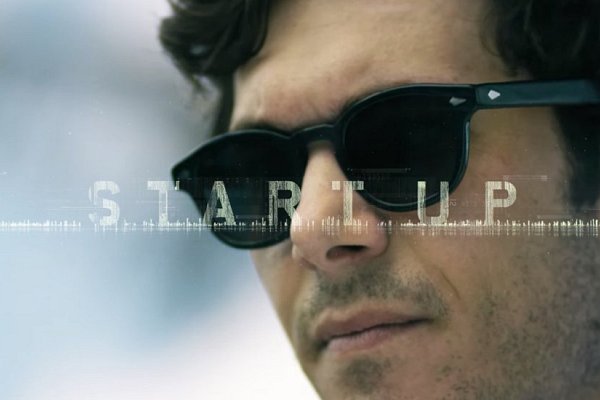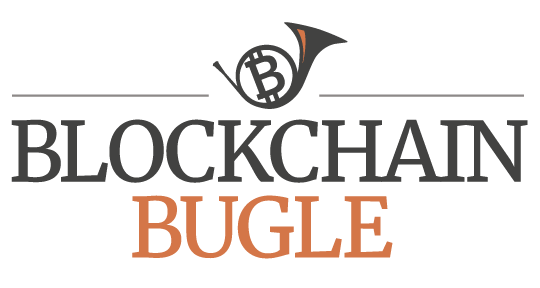Fictional Digital Currency GenCoin Premieres in New Crackle Show, StartUp

We know that something is becoming really popular and entering the collective mind when it starts appearing in popular TV shows. Bitcoin has been occasionally mentioned in Silicon Valley, Aaron Sorkin’s The Newsroom and the current (second) season of Mr. Robot, as well as being the dark web currency of choice in CSI: Cyber. Now the launch of GenCoin, a fictional digital currency inspired by Bitcoin, is the main theme of techno-thriller StartUp, the new Crackle show launched on September 6.
Crackle is a multi-platform video entertainment network of full-length movies, TV shows and original programming. It isn’t Netflix, not yet, but it’s becoming more and more popular due to its free viewing, ad-supported business model. Founded in the early 2000s as Grouper, the company was acquired and re-branded by Sony Pictures Entertainment in 2007 and started producing original content made for the internet.
When thinking of digital currencies, two places come to mind: Silicon Valley, where genius geeks develop the underlying cryptographic mathematics and code and Wall Street, where deep-pocketed and often ruthless financiers exploit virtual money to make lots of real money. But StartUp is set in Miami and soaked in the unique light-and-dark atmosphere of the sprawling city; white beaches, palm trees, shiny high-rises and seedy slums.
And of course, lots of sex, steamy as it must be, though not very relevant to the story. It appears that Sony wanted to have all the ingredients for a successful show, including an excellent cast. However, it’s much too early to tell if StartUp will be a success and catapult Crackle to the top.
Izzy Morales (Otmara Marrero) is a young Cuban-American genius programmer with a stellar record at Stanford. Now back in Miami, she is looking for money to launch the new digital currency, GenCoin. Morales, a talented hacker who operates server hardware racks besides developing code, meets potential funders and venture capitalists in Brickell’s Avenue, Miami’s tropical Wall Street, with cold reactions.
“Sorry, is it like PayPal?” a distracted manager at a seed capital investment firm asks Morales. A less distracted colleague then mentions Bitcoin. “Bitcoin is a cute idea,” says Morales, but adds that it is “susceptible to third-party interference and ultimately corruption.”
Everyone says that money corrupts people — according to Morales, however, we fail to recognize that people corrupt money. “GenCoin can put an end to that. It offers more stability, security and anonymity than any digital currency out there,” explains Morales. “GenCoin is a currency in and of itself. It runs off a complex algorithm that took me almost seven years to develop. It predicts, adjusts and adapts to market and political shifts in order to remain stable.”
Morales is looking for a $100,000 seed investment to launch a minimum viable prototype that, she hopes, will allow her to raise the $12 million she needs for an operational product. Ultimately, she wants to change the world by making secure and anonymous payments available to the “unbanked” in the developing world, a huge population of billions of people who can’t have a bank account but do have cell phones, which is all one needs to use GenCoin. The distracted manager, who is now paying attention, notes that the big banks won’t like the idea.
Here, things in the real world are different: mainstream financial operators are warming up to the advantages of digital currencies and appropriating the underlying blockchain technologies for their own use.
We don’t learn much more about GenCoin in the first StartUp episode. While the potential world-changing impact of “banking the unbanked” is often mentioned by Bitcoin enthusiasts, the interesting aspect of GenCoin is its ability to predict, adjust and adapt to market and political shifts. This short remark of Morales and the large servers that she operates, suggest the idea of sophisticated artificial intelligence and machine-learning algorithms that require a lot of computational and electrical power. It’s to be hoped that the next episodes — the first season of StartUphas ten episodes — will show more about how GenCoin works.
Of course the investors dismiss Morales with a “don’t call us, we’ll call you” put-down. But Nick Talman (Adam Brody), a junior staffer of the investment firm, sees the potential of GenCoin. It so happens that Tolman has two million dollars worth of dirty money from his estranged father, a banker who got the money from dangerous people. Talman decides to use the money to fund Morales.
But the money comes from the criminal underworld of Miami, and the first episode ends with Haitian gang member, Ronald Dacey, ambushing and assaulting Tolman in his apartment. Having seen what Dacey is capable of, we are left with the impression that Talman is about to be killed. But the StartUp official trailer and clips of forthcoming episodes available on Crackle’s YouTube channel show that Dacey, who is not an entirely bad person, will eventually become a partner.
The fourth main character is FBI agent, Phil Rask (Martin Freeman), who is following the money trail. There are indications that Rask isn’t an entirely nice guy and it seems likely that the conflict between the FBI and the GenCoin team will be interesting.
In summary, StartUp seems a robust techno-thriller with commercial potential and the first season of the show will offer ten hours of solid entertainment as well as stimulating reflections on the role of digital currencies in today’s society.
The post Fictional Digital Currency GenCoin Premieres in New Crackle Show, StartUp appeared first on Bitcoin Magazine.


